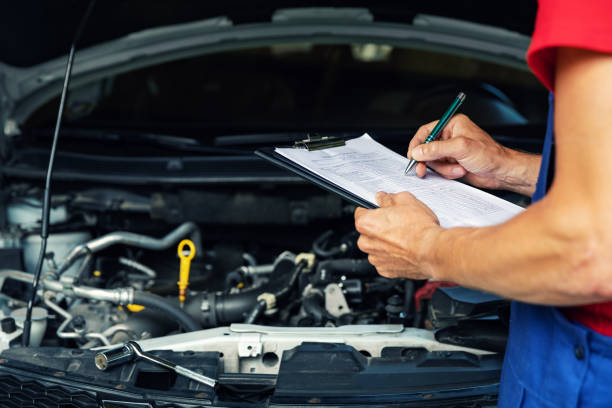What You Need To Know About Vehicle Repairs
It is sometimes hard to see the light when your automobile breaks down. No one wants to face car repairs, whether you are handy enough to do them on your own or have to get someone to do them for you. It all costs money, and you need to keep reading to learn how you can better handle auto repairs.
Torrington Windshield Replacement CT
Pay attention to the gauges and trouble lights on your cars dash. Learn to recognize the warning signs of a car that is overheating, low on oil or not charging the battery. Knowing which of these indicators need immediate attention can prevent damage to your car and save you cash in the long run.
To save a trip to the auto repair shop, you should take a look at your owner's manual. Here, you may find hints or perhaps answers to questions you may have about your vehicle. It can be quite helpful to know the size of your engine or its configuration, which is usually found in the manual.
Check your tire pressure regularly. Tires with a low pressure are a very dangerous liability. Check the pressure in your tires at least once a month or anytime you notice a tire seems to be losing air. Invest in new quality tires if you often have to adjust the pressure in your tires.
Know what the lights on your dash represent. Use them to your advantage, they're put there to guide you. Don't ignore any dashboard lights that come on, as the problem may grow worse if it's ignored.
Always research the reputation of any auto repair shop you are considering using to have your car serviced. If you are a AAA member, you can find a list of approved shops on their website. You can also download an app for your smartphone like Repairpal to view ratings for different repair shops.
Learn about car part classifications so that you are aware of what is going on during your repair. The classification of parts include new, rebuild and reconditioned, and salvage. New parts are made solely to a manufacturer's specifications. Parts that are rebuilt, reconditioned, and re-manufactured have been restored to good condition. "Salvage" parts have been used without being improved or repaired.
Keep your car manual in your car. In fact, keep the manual and any other documentation your car may have, including details on past repairs, tune-ups and more. The more data points your auto repair shop has to look into an issue, the better chance that they'll be able to give you a strong idea about what is going on with your car.
Make sure your car is ready for winter. The cold can be very hard on the vehicle's system so you should properly maintain it. Some things you should do are check the tires, check the antifreeze, replace old wipers, and inspect windshield washer fluid. Driving is hard enough in the winter, so make things easier by making sure your vehicle can handle the harsher weather conditions.
Without knowing where your car problems lie, repairing your car is impossible. Therefore, you must be able to recognize problems when they arise. For example, if your car belt has cracks in the perpendicular edge, or pieces fall out, you need to replace it immediately. Failing to recognize problems on time can lead to permanent damage to your car; therefore, recognize and resolve these problems as soon as you can.
Invest in a detailed repair manual for your vehicle. Even if you are not comfortable enough to fix your car yourself, you will at least get a better idea of how your car runs and perhaps diagnose a few problems yourself. Being knowledgeable will help you recognize an honest mechanic too.
Top mechanics advise that you look for a mechanic who displays an honest demeanor. They say that, in addition to good BBB ratings and proper licensing and certification, a good mechanic is simply "up-front". Mechanics who avoid eye contact, don't give straight answers and disregard your concerns should be avoided.
If you go to an auto mechanic and you are asking a lot of questions, take notice of his demeanor. It is perfectly normal for people to have questions about vehicle repairs. If he seems like he is bothered by you asking questions, you should probably go elsewhere to get your repairs done.
When storing your car, you can minimize the potential for repairs if you place the vehicle upon jack stands and fill the tank. You should not use the emergency brake when storing your vehicle, and ensure that the storage area is dry so that rust does not occur.
Do you feel like you can make a better decision now next time your car is in need? If you have been duped in the past, then you are going to be more cautious and choose wisely. You know based on what you've read that you can take care of things right this next time.

